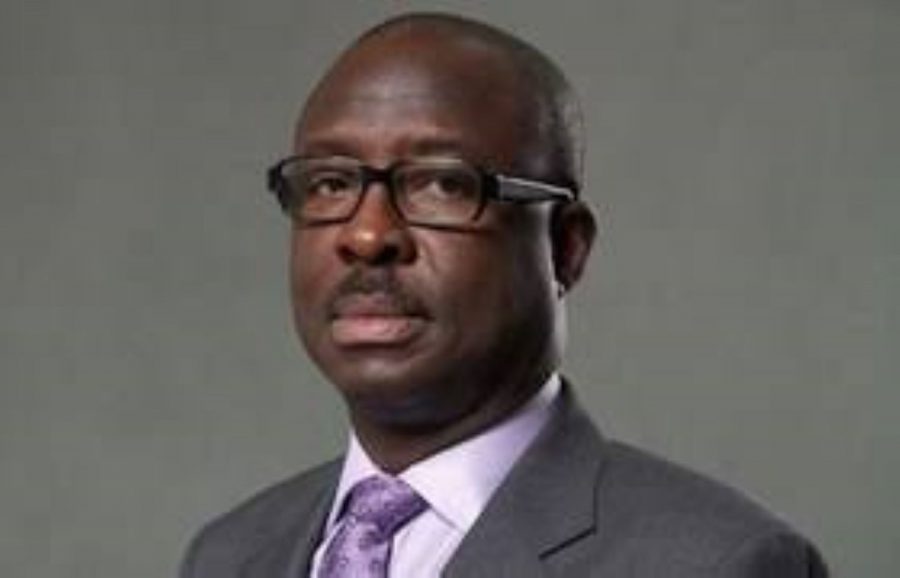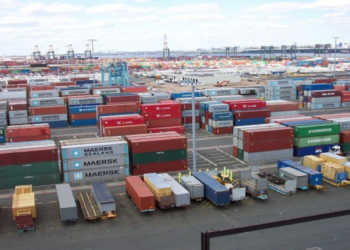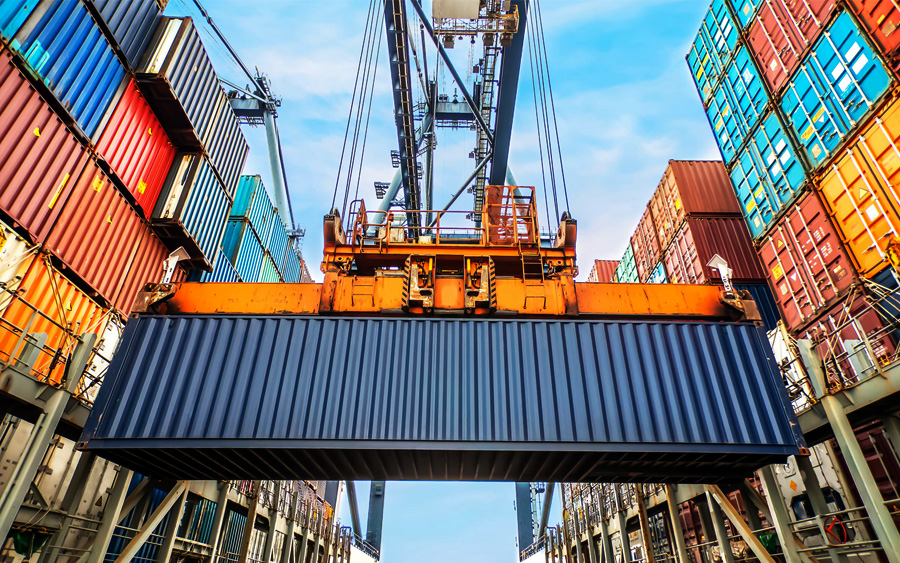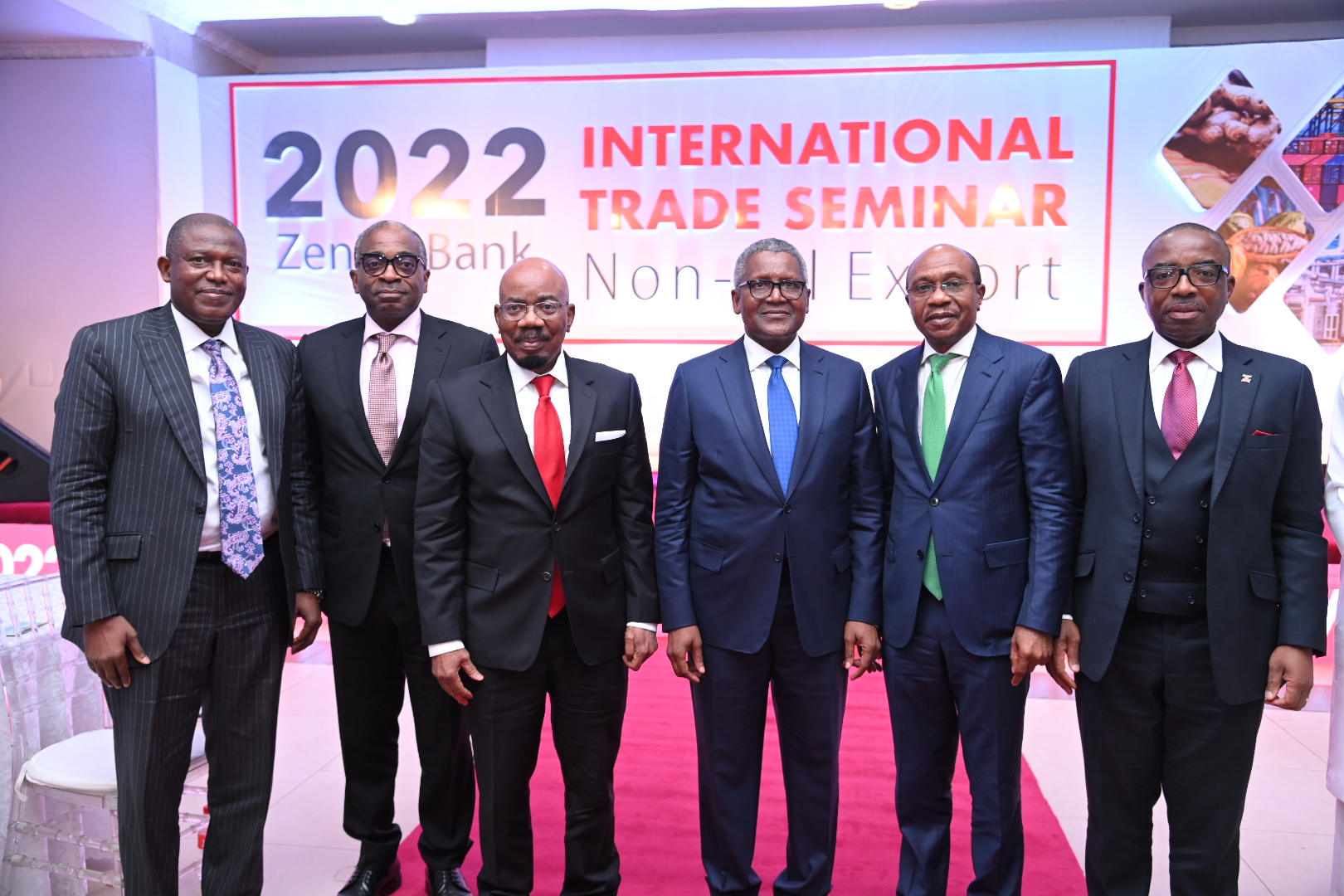The Federal Government has inaugurated the steering committee, which would implement the Export Expansion Facility (EEF) focusing on non-oil exports.
This was disclosed by the Minister of Trade and Investment, Otunba Adeniyi Adebayo, who inaugurated the committee on Thursday.
READ: FG targets $150 billion revenue from Zero-oil plan
The Minister told the committee that Nigeria’s economy remains a target for external shocks, including devaluation and inflation if Nigeria’s non-oil economy is not properly developed.
“We have witnessed the devastating impact that events outside our control can have on our livelihoods due to our reliance on a primary source of foreign exchange,” the Minister said.
READ: Nigeria’s cocoa exports to fall by $100m as prices rise in futures market.
“The coronavirus pandemic further amplified these vulnerabilities and reminded us that if we do not grow non-oil exports, our economy remains vulnerable to external shocks and their ripple effects of devaluation, inflation and unemployment.
“However, I believe we are on the right path in addressing these concerns and have chosen the right partners for the journey,” he added.
READ: Nigeria’s foreign reserves to increase by $150 billion in 10 years – FG
Mr Adebayo also stated that the Export Expansion Facility would protect export-based businesses that were negatively affected by the pandemic.
He revealed that the main goal would be to increase Nigeria’s non-oil export capacity in the short term and increase Nigeria’s non-oil export in the longer term.
READ: Nami eyes N4 trillion from extractive sector to meet President Buhari’s unusual target
He said their duties are:
- Ensure on-time implementation of the programme in line with FG’s expectations.
- Implementation is in line with the benefit of its beneficiaries.
- Approval of Programme Implementation Plan and Budget in accordance with agreed priorities and approval of implementation strategy of EEF’s projects and target.
READ: Dangote Cement given approval to export through land borders
The Minister will be the Chairman of the committee; other members include Mr Nnamdi Okonkwo, former MD, Fidelity Bank as the Vice Chairman and Mr Olusegun Awolowo, Executive Director, Nigeria Export Promotion Council.
Mr Mansur Ahmed, President, Manufacturers Association of Nigeria, Mr Suleiman Audu, Director, Commodities and Export Department of the ministry, and Mrs Suratu Umar, Founder/Chief Executive Officer, Aisston Consulting, and others.
READ: FIRS generates N490 billion tax revenue in July, collects 89% from non-oil sector
What you should know
- Nairametrics reported in 2020 that the Nigeria Export Promotion Council (NEPC) stated that the FG had identified about 22 non-oil strategic products that would be exported to diversify the nation’s foreign exchange earnings away from oil.
- This initiative is part of the zero-oil plan currently being implemented by the Nigeria Export Promotion Council (NEPC), in collaboration with the private sector, and is estimated to be worth over US$150bn in annual export value.
- The products are palm oil, cashew, cocoa, soya beans, rubber, rice, petrochemical, leather, ginger, cotton, shea butter, tomato, banana and plantain.
- Nigeria recorded its highest ever non-oil exports in 2019. Non-oil exports, which are considered a priority for the administration, jumped over 100% from $4.6 billion to $10.4 billion in 2019.
- The Central Bank of Nigeria (CBN) issued a guideline to access its Non-Oil Export Stimulation Facility (NESF). The fund was introduced to diversify the revenue base of the economy and to expedite the growth and development of the nation’s non-oil export sector.






















